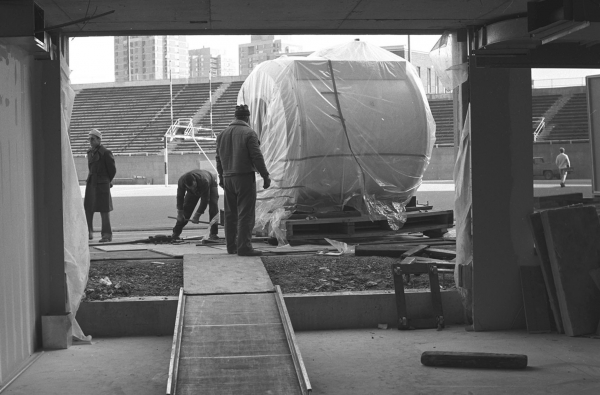McGill’s new 7T Magnetic Resonance Imaging (MRI) machine, located at the Montreal Neurological Institute (MNI) or ‘the Neuro,’ is the first of its kind in Canada. The T refers to ‘Tesla’, the unit of measurement for the magnetic strength of the machine. At 7T, it outperforms the 3T MRI machine that is the current standard in neuroimaging technology.
“This [7T] scanner has a higher magnetic field than conventional scanners,” Amir Shmuel, an assistant professor in McGill’s Department of Neurology and Neurosurgery and researcher at the MNI, said. “What this allows [is] better resolution […] and improved contrast [….] We cannot see brain columns and layers at 3 Tesla, [which] are small structural and functional units [of the brain]. They are in the range of 0.4 to one mm. In order to be able to observe them and also detect functional signals, we need 7 Tesla.”
Shmuel and his team obtained $18.8M in funding to cover the new machine and various other projects at the Neuro. The 7T MRI project alone reportedly cost approximately $10M in construction and equipment, although it was covered under a research grant from the Canadian Foundation for Innovation.
“At the Neuro, we’ve got a long history of doing what’s called ‘functional MRI’,” Richard Hoge, associate professor in the Department of Neurology and Neurosurgery and the director of the MRI program at the MNI, said. “In functional MRI, psychology and basic neuroscience researchers will have subjects inside the scanner while they are doing different tasks [….] Specific types of imaging techniques can help to localize the brain areas that are involved in performing those tasks. So, the motivation for getting the higher yield, the 7T MRI, as opposed to the 3T MRI that we currently have, is that the system [can detect] much smaller functional changes, and it can also localize brain responses much more precisely.”
Researchers at the MNI are interested in using this new technology to uncover previously-elusive structures in daily functions, such as those associated with vision, as well as to studying neurological diseases with greater clarity. While a 7T MRI was installed in the Robarts Research Institute at the University of Western Ontario in 2009, McGill’s new machine is capable of scanning the full body instead of just the head. This opens the door to studying the role of the spine as part of the central nervous system and its implications in neurological diseases.
“[With this research], we very much hope to significantly improve our capacity to detect and to observe early changes in the brain that are associated with multiple sclerosis, epilepsy, Parkinson’s, and dementia,” Shmuel said. “The scanner will allow us to detect subtle changes in the structure and function in the brain, [which is] part of what we expect with neurological disease.”
The MNI is developing its backend computational capabilities to store and analyze the large sets of data from the 7T MRI, in addition to pushing to better define the ethical standards around how data is collected. In terms of accessibility, the MNI intends to make the data collected from the machine available to the public as part of its commitment to open science.
“The Neuro has been a pioneer in institutionalizing the notion that data collected should be shared on open databases that are accessible to other researchers,’ Hoge said. “[This is] to avoid duplication of human experiments and also allow more researchers access to the data, and, hopefully, have a bigger impact on public health and on basic research.”
Equipped with this brand-new technology, the MNI will be focusing on training researchers in how to best use the machinery and interpret the results, as operating it can be a technical challenge. In the future, researchers hope to train students and continue to purchase the latest imaging technology so as to be on the leading edge of neuroscience research.








